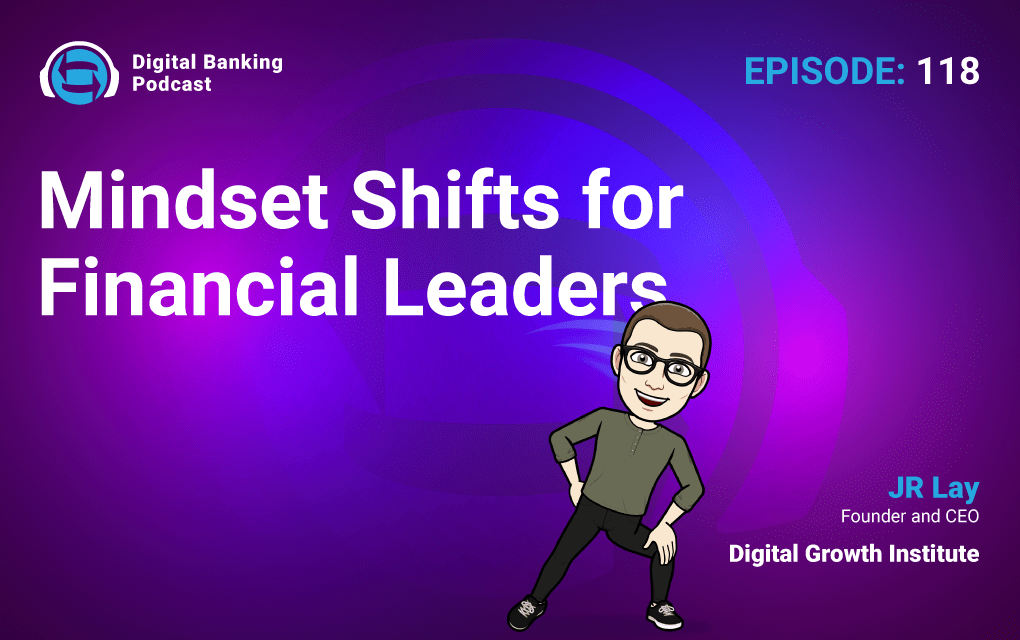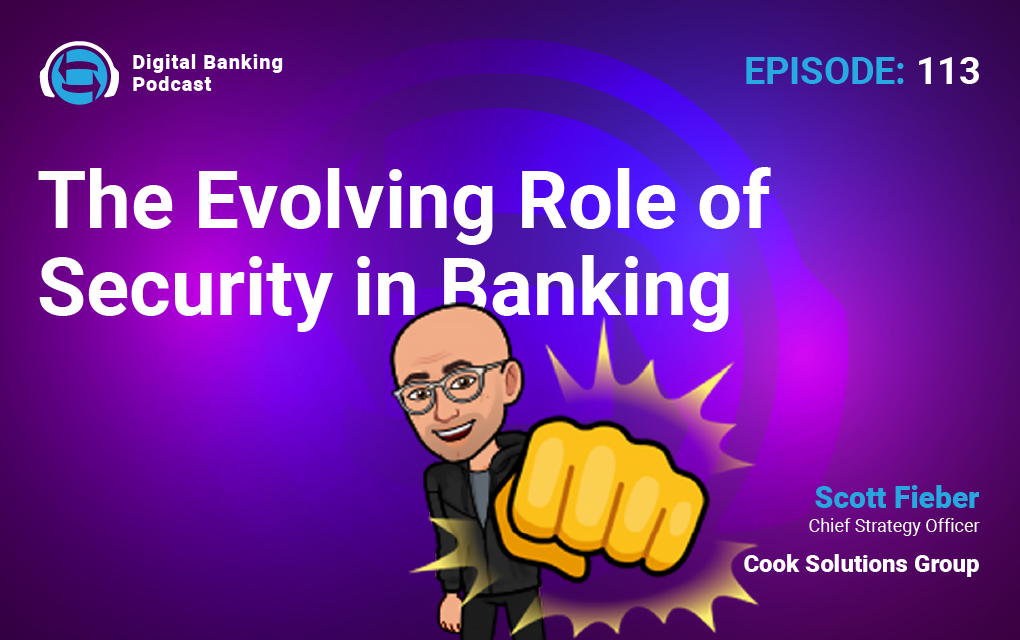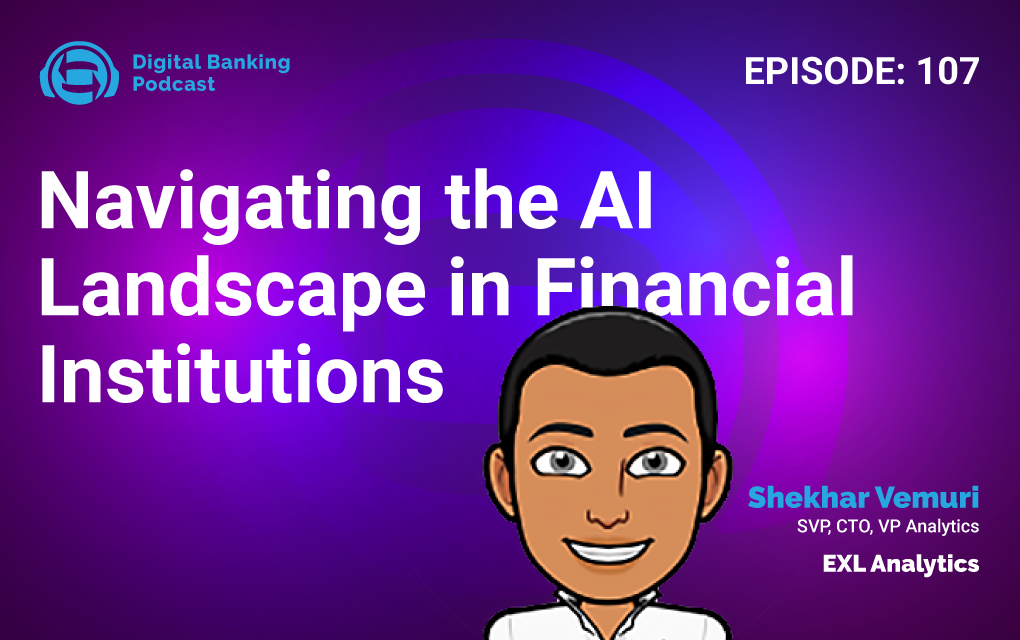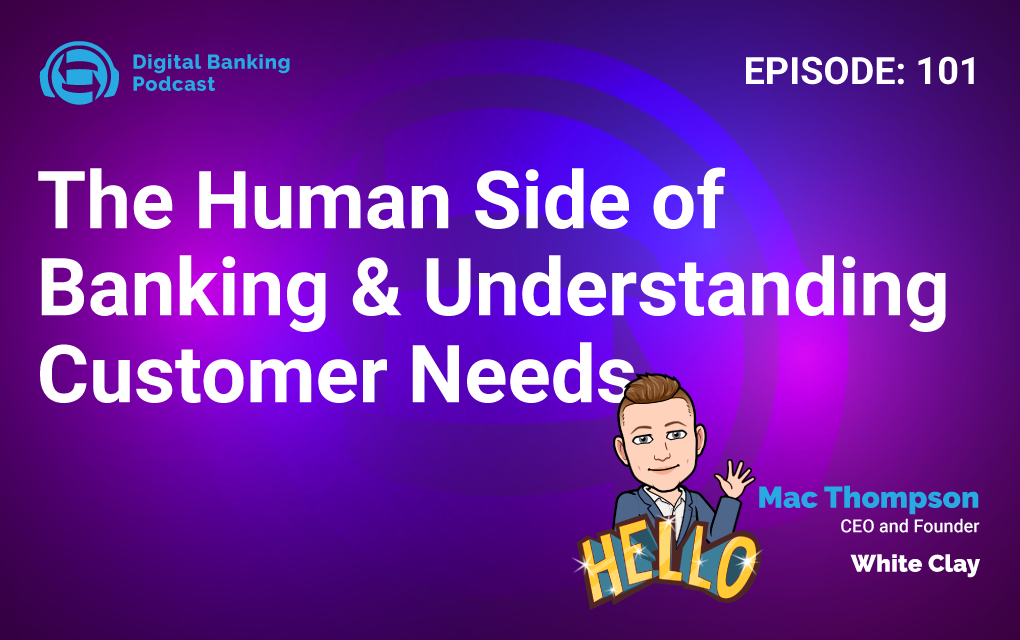Being Totally Prepared for an Uncertain Future, with Don MacDonald
LISTEN NOW
”Finance is the root of everything we need to get things done. So the role of banking should probably be the number one thing in our lives, but we’ve turned it into a series of transactions as opposed to really helping customers.”
Episode Summary
During his 30+ years marketing technology of all sorts, Don MacDonald worked for Intel, Qualcomm, Fiserv, and MX. As a result, the insights he shared on this episode of The Digital Banking Podcast are beyond valuable as they help banking professionals mitigate fear and embrace change.
MacDonald shared Andy Grove’s philosophy and how it shaped his thinking, the lessons he learned from bees and believes could benefit everyone, and how taking the customer-first approach and providing a personalized experience while leveraging technology and data is the future of FIs.
Key Insights
⚡ Most people embrace change only when the ship’s burning.
That’s why strategic planning and building best-case and worst-case scenarios based on past experiences is essential. ”It’s rare for people to change while on the front foot. And that’s the skill well-managed companies have cultivated over many decades,” said MacDonald. “I’ve had the privilege of working with a lot of very wonderful companies. The best practices would have some form of strategic planning that would involve a completely isolated look at what’s happening in our industry.”
⚡ Financial institutions can learn plenty from bees.
MacDonald is a beekeeper and offers bees as a powerful analogy. ”Survival is their number one instinct. So they gather pollen and nectar for the winter and turn it into honey. But one thing they also do is get rid of any unnecessary cost or overhead,” noted MacDonald. “Typically, in a hive of about 50,000 bees, they’ll all be female except for about ten drones. But winter comes, and they don’t need the men. And what you’ll see — it’s a sad thing, but it’s a precious lesson for everyone — is four or five worker bees dragging the men out of the hive.” He added that bees are “ruthless about being efficient,” adding that this is a “prescient lesson for the banking industry: What’s necessary, what’s nice to have, and what’s essential?”
⚡ What credit unions do is necessary, but not sufficient.
Credit unions differ from big players in the space by providing a community, friend-next-door feel. However, according to MacDonald, that’s not enough. ”Credit unions generally give you more money for your deposits, charge you less for your loans, and are more about looking after members than maximizing profits. But the results show that — does that matter?” MacDonald pointed out that more than half of U.S. adults belong to a credit union, but only 10% of all assets are under management with the credit union. The key, he said is to “get creative. Think about what help looks like, not just gathering the deposit and making loans.”









